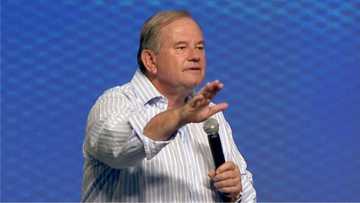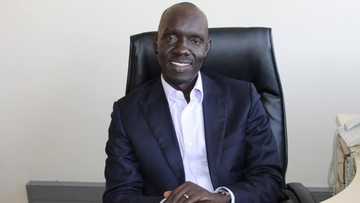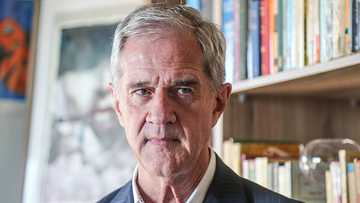Desmond Tutu: Age, children, education, quotes, foundation, apartheid, awards
Desmond Tutu was a renowned retired Archbishop from South Africa. He served as the first black Archbishop of Cape Town back in the day. Desmond Tutu played a significant role in the South African community in bringing the Apartheid era to a halt. Here is all you need to know about him.
PAY ATTENTION: Follow Briefly News on Twitter and never miss the hottest topics! Find us at @brieflyza!
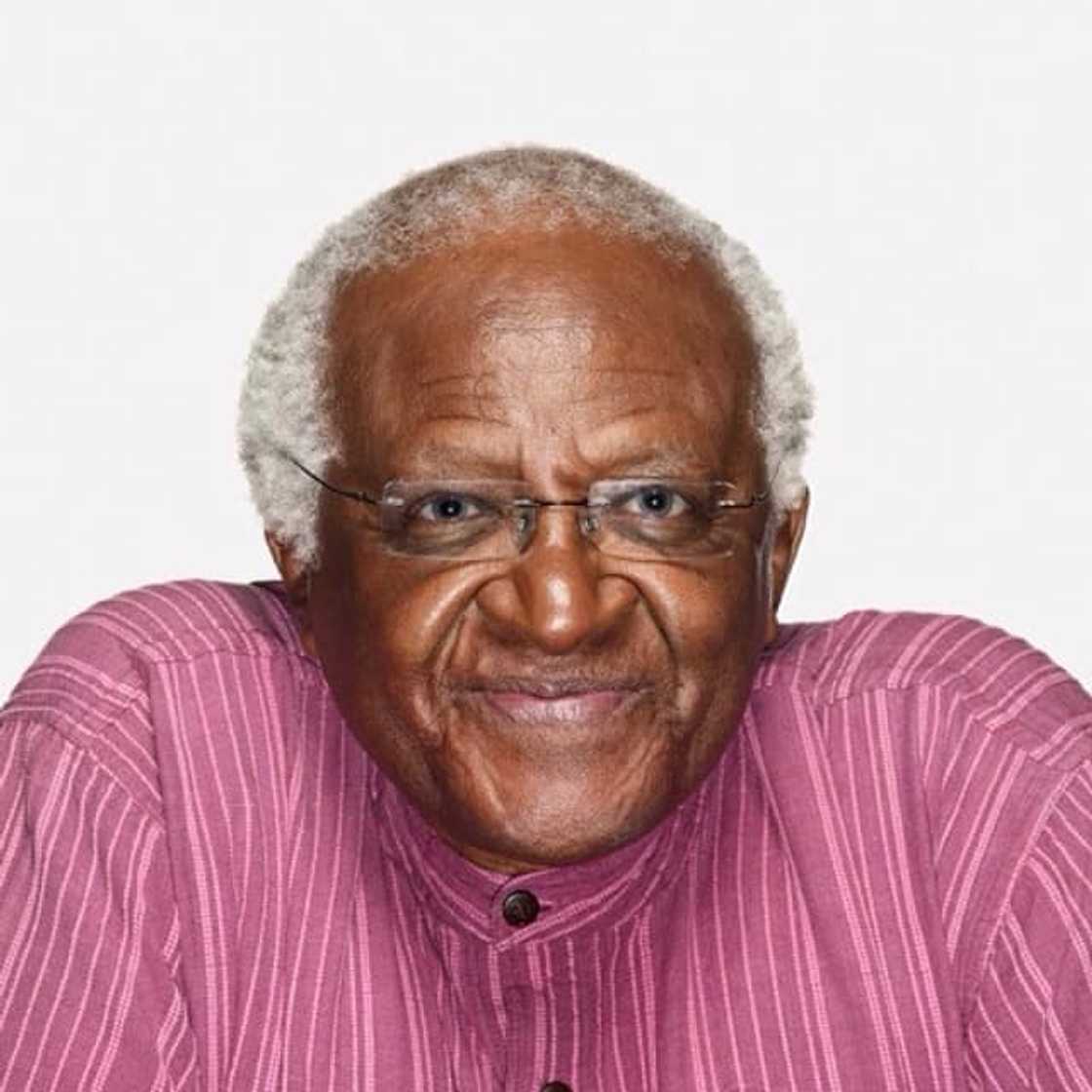
Source: UGC
Desmond Tutu became famous in the 1980s when he stood firm against the apartheid rule. Due to his devotion and love for the people, he was chosen by many to be the first African South African Anglican Archbishop of Cape Town.
Desmond Tutu profile summary
- Full Name: Desmond Mpilo Tutu
- Age: 88 Years Old
- Date of Birth: October 7th, 1931
- Place of Birth: Klerksdorp, South Africa
- Profession: Archbishop
- Height: 5’10’’ (178 cm)
- Career: Cleric
- Famous as: Anti-Apartheid Activist
- Spouse: Leah Nomalizo Tutu
- Date of death: 26/12/2021
PAY ATTENTION: Never miss breaking news – join Briefly News' Telegram channel!
Desmond Tutu early life
Desmond Tutu was born on October 7th, 1931, in the heart of Transvaal, South Africa. At the age of 12 years, they moved to Johannesburg as a family where he received education and graduated in 1954 from the University of South Africa.
Desmond Tutu contributions
Tutu was committed to fighting Aids worldwide and has been the chairman of the Global Aids Alliance. After 1994, under the ANC rule, he was recognised for coining the word “Rainbow Nation” to define post-apartheid in South Africa. From 1951 to 1953, he studied at the Pretoria Bantu Normal College and taught Bantu High School until 1957. Due to poor educational projections for African South Africans, he resigned from the Bantu Education Act to further his studies for a better future.
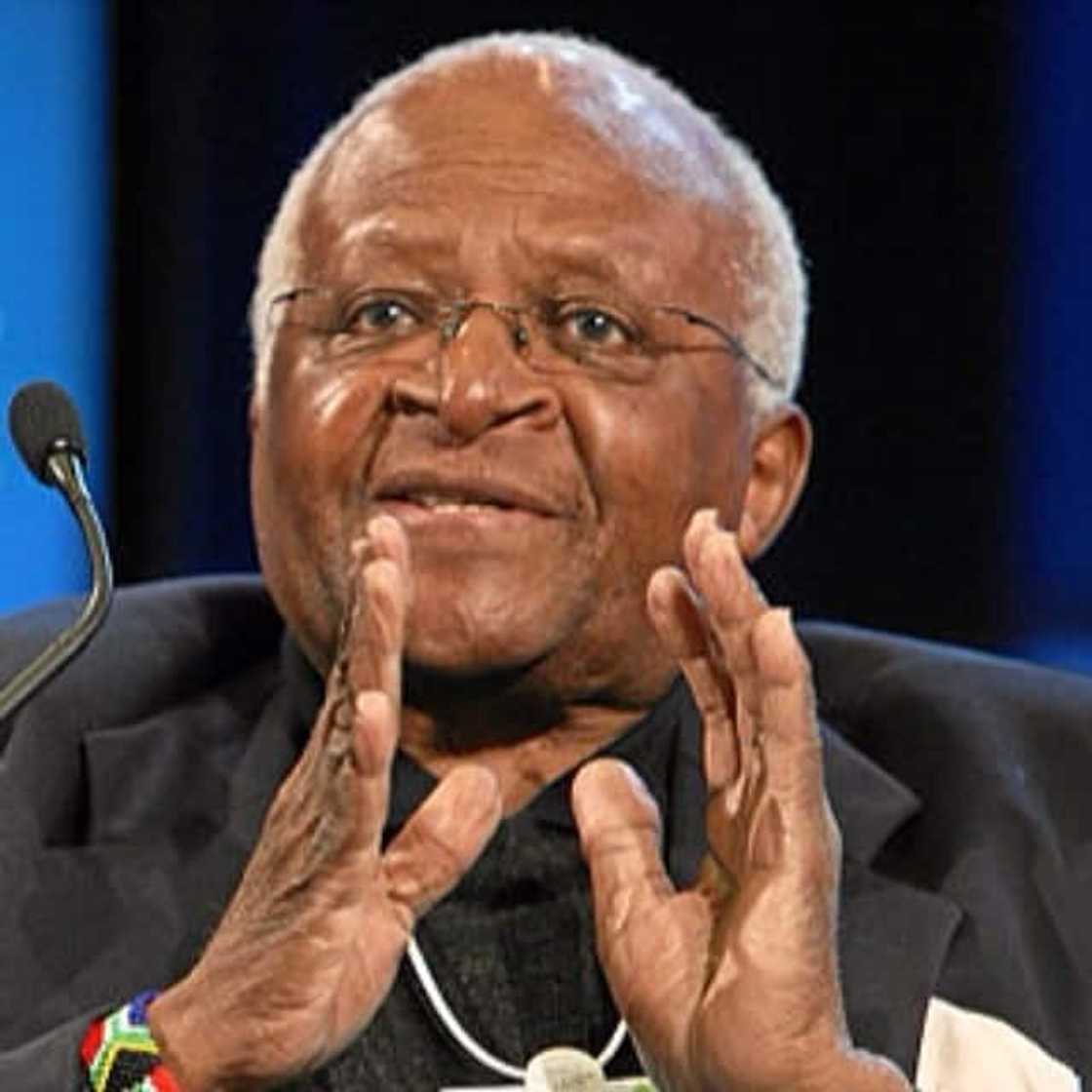
Source: UGC
In 1960, he got the role of an Anglican priest. In 1962, Desmond Tutu travelled to London, and in 1966, he graduated with a Master’s degree in Theology. Tutu, together with his family, returned to South Africa in 1967 and started offering lectures to South Africans from 1970 to 1972.
In 1972, he made his way back to the UK, where he was appointed as the vice-director of the Theological Education Fund of the World Council of Churches in Kent. In 1975, he was elected as the first African Anglican Dean of Johannesburg.
Desmond Tutu personal life
Desmond Tutu married Leah Nomalizo Tutu in 1955, and he was blessed with four children; Trevor Thamsanqa Tutu, Theresa Thandeka Tutu, Naomi Nomtombi Tutu, and Mpho Andrea Tutu who all schooled at the Waterford Kamhlaba School in Swaziland. Tutu had support from his family during the dangerous campaigns, not forgetting the numerous death threats he received.
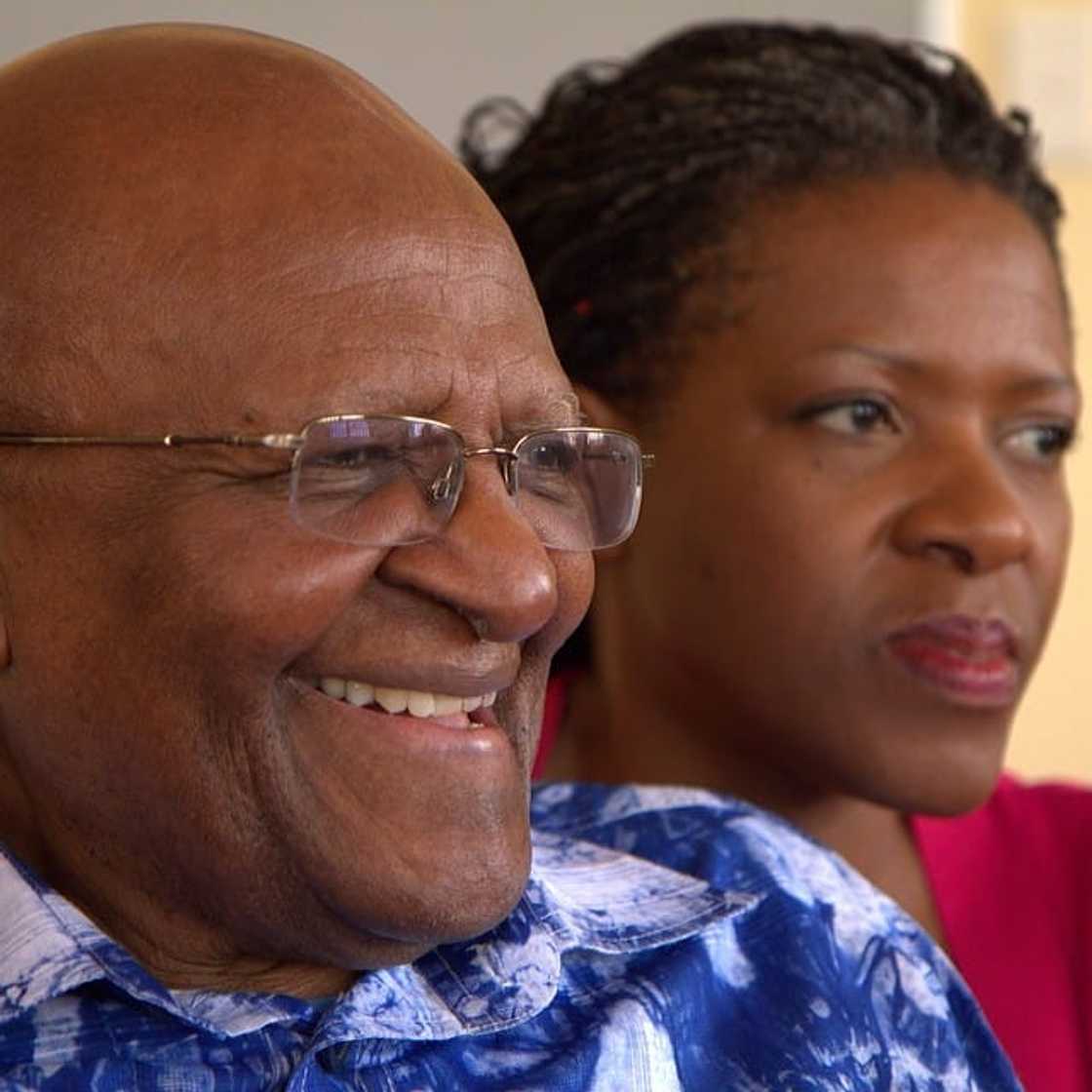
Source: UGC
Desmond Tutu awards and achievements
Desmond Tutu was awarded the Nobel Peace Prize on October 16th, 1984. This is because he played a significant role in unifying South Africans against Apartheid.
On September 7th, 1986, Desmond led the Anglican Church in South Africa as the first black person. He was later invited to England for Christian Celebrations to mark the city’s centenary.
Tutu was accredited the Sydney Peace Prize in 1999 after the collapse of Apartheid. In 2004, King’s College was celebrating its 175th anniversary, and Tutu was invited as a professor to give the Commemoration Oration.
Tutu later acknowledged the Marymount University 2004 Ethics Award on March 17th, 2004.
Archbishop Desmond Tutu quotes
- You don’t choose your family. They are God’s gift to you, as you are to them.
- Do your little bit of good where you are; it’s those little bits of good put together that overwhelm the world.
- My humanity is bound up in yours, for we can only be human together.
- I am not interested in picking up crumbs of compassion thrown from the table of someone who considers himself my master. I want the full menu of right.
- Without forgiveness, there’s no future.
- We may be surprised at the people we find in heaven. God has a soft spot for sinners. His standards are quite low.
- When missionaries came to South Africa, we had the land, they had the Bible. Then they told us, ‘Let’s close our eyes and pray.’ When we opened our eyes we saw that we have the Bible, they have the land.’
- It is our moral obligation to give every child the very best education possible.
- In my country of South Africa, we struggled for years against the evil system of Apartheid that divided human beings, children of the same God, by racial classification and then denied many of them fundamental human rights.
- God’s dream is that you and I and all of us will realize that we are family, and we are made for togetherness, for goodness, and for compassion.
- If you are neutral in situations of injustice, you have chosen the side of the oppressor. If an elephant has its foot on the tail of a mouse and you say that you are neutral, the mouse will not appreciate your neutrality.
- Your ordinary acts of love and hope point to the extraordinary promise that every human life is of inestimable value.
- Forgiveness says you are given another chance to make a new beginning.
- Hope is being able to see that there is light despite all of the darkness.
- Racism, xenophobia and unfair discrimination have spawned slavery, when human being have bought and sold and owned and branded fellow human beings as if they were so many beasts of burden.
- When we see the face of a child, we think of the future. We think of their dreams about what they might become, and what they might accomplish.
- God’s love I too great to be confined to any one side of a conflict or to any one religion.
- For Christians, who believe they are created in the image of God, it is the Godhead, diversity in unity and the three-in-oneness of God, which we and all creation reflect.
- You stand out in the crowd only because you have these many, many carrying you on their shoulders.
- If you want peace, you don’t talk to your friends. You talk to your enemies.
- Inclusive, good-quality education is a foundation for dynamic and equitable societies.
- Your ordinary acts of love and hope point to the extraordinary promise that every human life is of inestimable value.
- In South Africa, we could not have achieved our freedom and just peace without the help of people around the world, who through the use of non-violent means such as boycotts and divestment, encouraged their governments and other corporate actors to reverse decades-long support for the Apartheid regime.”
- All the United States, it is a society that is split like to the bottom, that had very poor people in the country that is one of the wealthiest countries.
- A person is a person because he recognizes others as persons.
- Oh, 1994, April 27. There won’t be a day like that ever again. I mean, the sky was blue, with a blueness that had never been there before.
- I have been to the Occupied Palestinian Territory, and I have witnessed the racially segregated roads and housing that reminded me so much of the conditions we experienced in South Africa under the racist system of Apartheid.
Desmond Tutu Charity work
In 1997, Desmond Tutu was diagnosed with prostate cancer, and in 2007, he became the lead patron of the South African Prostate Cancer Foundation. In 2004, he founded the Desmond Tutu HIV Foundation.
Desmond Tutu death
Archbishop Desmond Tutu, the last surviving South African laureate of the Nobel Peace Prize, has passed away at his Cape Town home on Sunday, 26 December, the office of the presidency said.
Archbishop Emeritus Desmond Tutu was 90 at the time of his passing. He's survived by his wife Leah, their four children and his many grandchildren.
Source: Briefly News


